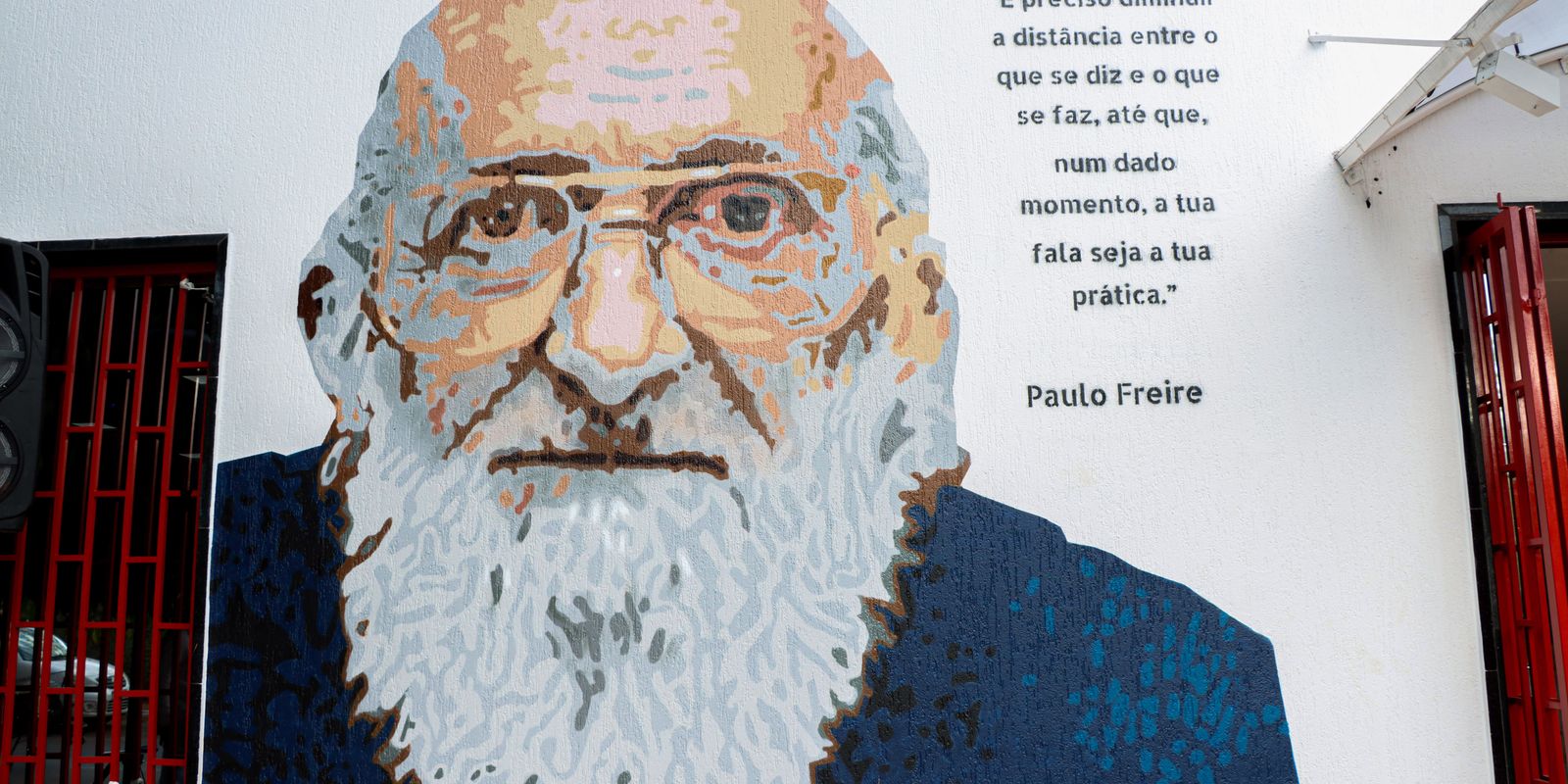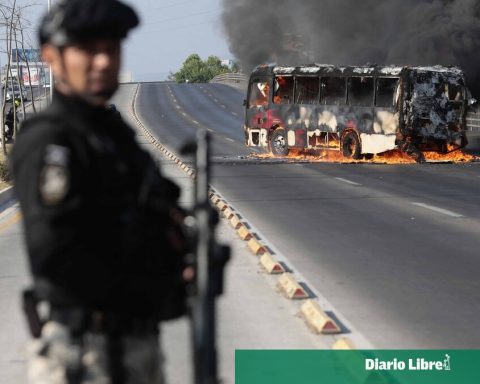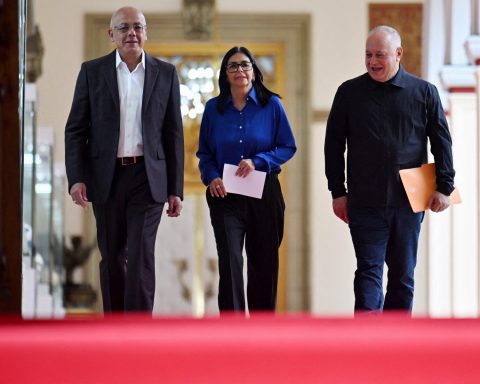The name of Paulo Freire, from Recife, is on the lips of Brazilians and foreigners who either reject the principles of his philosophy or embrace them wholeheartedly. In the case of the lawyer, educator and former Secretary of Education of the capital of São Paulo, the number of misconceptions surrounding what he defended as a method is enormous. It was with the aim of refuting some distortions that the Cultiva Institute launched this Thursday (19) the digital series “The 7 Myths about Paulo Freire”.
Paulo Freire was born in the capital of Pernambuco, on today’s date, in 1921. At that time, the Manguebeat movement did not yet exist, denouncing what would result from an analysis of the city from the perspective of social development.
In an interview with Brazil Agencypolitical scientist Rudá Ricci, a former student of the educator and current president of the Cultiva Institute, tells how he discovered Paulo Freire’s work and how he saw him in person for the first time.
At the age of 16, Ricci, from São Paulo, was already in contact with leaders of social movements in the Northeast and was reading Freire, among other authors. While he was studying law at the Pontifical Catholic University of São Paulo (PUC-SP), he decided to attend an event with the educator. However, he underestimated the number of people interested in the event, arrived at the last minute and ended up not being able to get close to him. Sometimes, he skipped his undergraduate classes to attend Freire’s classes on the postgraduate floor with Freire’s permission, on the condition that he turn in all the work required of the others.
“I don’t think he really believed it, but I did what I had promised. Some time later, he invited me to a seminar that was being held on Saturday mornings, in a much larger room at PUC, room 333. I went and, once again, I was shocked. There were people sitting on the floor, there were so many people, an auditorium with 200 people. There were people from all over the world, which surprised me even more. I thought: how could someone fly from Finland to attend one of his classes on a Saturday? There were people from Argentina, it was very impressive. And his classes were very different. He would pick up one of his books or another and would only read one page. He would read a paragraph, stop, comment on something he had experienced in Europe or Africa, then go back and make references to other authors,” he recalls.
The first time he heard about the Frankfurt School, which criticized the consequences of capitalism in various social dimensions, was during this phase. “It was really a seminar, very sophisticated. He invited me to be an adult literacy teacher, first, at PUC. They were cleaners, doormen of the buildings. And that’s when I entered the world of education for good. I became his friend. He was secretary of [Luiza] Erundina, I was undersecretary of regional administration. So, it was a real connection, more theoretical, but also emotional. He was a kind of grandfather, very caring. So, my career started with Paulo Freire, you can imagine”, she recalls.
According to the Cultiva representative, Paulo Freire understood that the political dimension was in the relationship between the educator and the student. Ricci clarifies that, for the thinker, the educator should not teach the student what he should be.
“He said that this is the worst thing about educators or politicians who want to change the world and are at the service of those who are marginalized. He said: look, there are many revolutionaries who think about revolution so they can have more power, so they can overthrow those in power and take their place, but they don’t want change. What I would highlight is how he forced us to have self-control over the educator’s own drive, the educator’s anxiety, the desire to change at any cost, with a slap on the wrist,” he emphasizes.
Ricci explains that the approach conceived by Paulo Freire takes into account the context of each student and gives an example of a case in which the student witnessed the murder of her own brother, executed by drug traffickers, at the door of her school, an episode that made her unable to attend classes anymore, due to the trauma. The school’s management then decided to change her class schedule to help her. “They realized that, if they changed her shift, maybe the environment, that memory, would change. By changing her shift, she blossomed,” she reports.
Rudá Ricci also highlights that education must be based on social relationships, not just on technique, questioning the validity of performance indicators as the only way to assess teaching.
“Paulo Freire will say that the technique only needs to be used in the classroom when I first have a social diagnosis of the student. If the student is hungry, how will he concentrate on math? If he suffers sexual abuse, how will I welcome him to study geography? He will say: this is the teacher’s problem, but it is not an isolated problem of the teacher. It is a problem of the secretariat, of the governments, of Brazil’s public policy project. What does this mean? That the school is not enough and the teacher is not enough. You need to have, at the very least, a connection between the school, health and social assistance”, he adds.
Through Freire’s pedagogical approach, which has humanization and emancipation as its references, educators themselves are transformed. Ricci says that he always leaves every class exhausted, because he keeps monitoring his reactions and those of his class, while he strives to find the best cues to effectively dialogue with students, based on genuine exchanges. In addition, he coined the term tactical silence, capable of increasing the possibilities of dialogue when the educator contains his manifestations in front of a student who thinks differently from him, creating an environment of trust.
According to Ricci, Paulo Freire said that the educator must always observe the students’ expressions during class, their involvement, whether the words are understood or not, whether the words bring teaching or provocation, whether the classroom is a space for doubt and whether the students are being respected.
“Paulo said this all the time: you won’t deny who you are or what you think, but you have to know when to say what you think. Because if you say it at the wrong time, you humiliate the student. Because the educator will always have authority, he is always different from the student, but the way he presents himself is what must be democratic,” he says.
>> Check out the list of myths from the Instituto Cultiva series below:
1. Paulo Freire does not educate, but indoctrinates.
Freire always defended that students should be able to think for themselves and question reality.
2. Brazil adopted the Freirean method.
Its methodology was never applied nationwide, but only in specific schools.
3. His method was responsible for the increase in illiteracy.
Educational problems in Brazil come from other factors, such as social inequality and the lack of investment in education.
4. Paulo Freire never taught.
Paulo Freire was a Portuguese teacher in Recife and held various positions in education, from Sesi to universities such as Harvard and Unicamp.
5. Paulo Freire’s method is a failure.
Paulo Freire’s method is a reference in Finland, which frequently leads international education rankings.
6. With Paulo Freire the teacher lost authority.
Freire never defended an education without authority, as long as the teacher exercised it in a democratic way.
7. Anyone who follows Paulo Freire is a communist.
Paulo Freire not only distanced himself from Leninist doctrine, but also criticized revolutionaries who did not engage in dialogue with the social base.
















